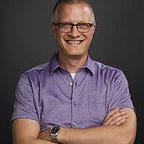Why Effective Altruism Might Not Be
This morning, I caught the latest episode of the Ezra Klein Show, a conversation with Holden Karnofsky, one of the founders of GiveWell and now an executive in the organization Open Philanthropy. The podcast broached big questions about Effective Altruism, a movement whose driving concern is how to calculate and execute the most possible good.
What makes the project so extraordinary is its obsession with what it can’t see, and, really, what it will never be able to see. The only thing I love more than their willingness to say what they don’t know is their audacious determination to take action anyway. I admire their conviction that, in many cases, you need to commit your dollars to a cause first and then, through that commitment, to discern the actual effectiveness of the cause. They call this “giving to learn.”
The sage Qoheleth in the book of Ecclesiastes calls it casting your bread on the water.
Perhaps most interestingly, the Open Philanthropy folks practice “worldview diversification,” which entails sitting loose to any particular approach to philanthropic problem-solving. Some donors might think you can do the most good by purchasing bed-nets for malaria-vulnerable populations. Fine, they say. Go to it. Other donors might posit that you can do the most good by increasing the chances of human survival in the distant future. Also fine. Let’s make that happen, too. Because it’s impossible to see our own blindspots the way our descendants will, Open Philanthropy keeps as diverse a portfolio of do-gooding projects as possible — or as their blog puts it, they position “significant resources behind the most promising causes according to each worldview that we find highly plausible.”
To me, this Karnofskian quest for altruistic effectiveness recalls the Search for Extra-Terrestrial Intelligence, beaming messages into the future in all directions in randomized bids for alien response — only in this case, the aliens are populations a billion years hence.
My research for the book Why Spiritual Capital Matters has a similar fascination with what social problem-solvers can’t yet see. But unlike Karnofksy and company, I think that problem-solving humility requires less utilitarian calculation than slow and generous acquaintance with neighbors and places. My book tells stories about those aliens who live, not in deep space, nor in the distant future, but right next door. Capturing those stories about collaborating with strangers who are also neighbors suggests to me that the hardest work of philanthropic discernment isn’t guessing which problem and which solution will matter in a billion years. Instead, what’s needed is learning to see what gifts are already moving in our workplaces and neighborhoods.
Let me distill some of what I learned from talking with socially entrepreneurial leaders who sought to cultivate this mode of spiritual attentiveness.
1. Don’t try to broaden empathy as far and as universally as possible. Instead, seek to embed empathy in particular places and for particular people. In this, my interviewees echoed Wendell Berry’s counsel to practice affection for the local.
2. Think less about the social impact value chain than about the social ecology. Karnofsky asks smart questions about where to plug in your dollars to achieve the quantitatively most impressive outcome. But what if, instead of thinking about the final computation in such a linear equation, we thought about the every-which-way-ness of neighborly life? Care for the ecology, and the outcomes take care of themselves.
3. Worry less about personal astuteness than about collective attentiveness. I contrast this with what I take to be Karnofsky’s vision of the problem-solving theorist pacing the halls of a think tank all day long, asking unbearable questions about humans many millennia from now.
4. Act convivially rather than altruistically. The leaders I spoke with, in other words, weren’t just trying to provide resources to the under-resourced; they were also helping to catalyze the resources already moving in a locale. The vision is less of a big truck arriving with bed nets than of a block party in which everybody’s a guest and a host at the same time.
“Whatever your hand finds to do,” writes Qoheleth, “do it with your might; for there is no work or thought or knowledge or wisdom in Sheol, to which you are going.” I am saddened and, in a way, relieved by this reminder of human brevity. I am consoled by the counsel to do life with a virtuosity unanxious about distant futures devoid of thought or knowledge or wisdom. It is a part of the glory of human life that we cannot stop calculating the future. But if we do nothing more than that, we may well miss the wisdom in our fleetingness. Living with existential conciseness alerts us to unobvious resources at hand. It also asks us to take the hands of neighbors among whom such gifts are already moving.
